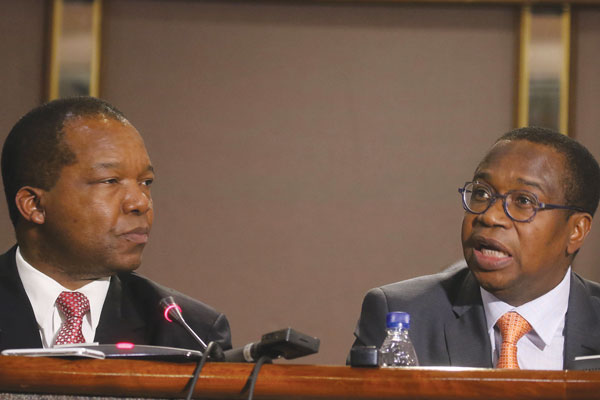
EVERYONE recognises that Finance Minister Mthuli Ncube has the duty and obligation to stabilise the economy, for that is the wish of pretty much every one of Zimbabwe’s citizens.
It is no secret to many people that the stabilisation process will be accompanied by reforms, including structural reforms with some disruptive effects.
However, the whole stabilisation and reform agenda should be achieved, firstly through consultation and, more importantly, within the confines of law.
Surprisingly, the Treasury boss made the unilateral decision to raise the tax on intermediated money transfers such as mobile transactions and RTGS (real time gross settlement) to 2% per dollar from 5 cents per transaction without consulting key stakeholders such as business organisations and representatives of workers and consumers.
The Confederation of Zimbabwe Industries, in disapproval, has said that business was “ambushed” by the tax adjustments, which were announced on Monday last week, coming into force the same day.
Following a national outcry, from literally everyone—business, government institutions and households/individuals — Ncube has been forced to revise the tax rate by granting exemptions and putting an upper limit on its application. The Law Society of Zimbabwe has criticised the tax adjustment as illegal, as no amendments to the Finance Act have been done to give legal effect to the tax adjustments. Furthermore, the consent of the Reserve Bank of Zimbabwe (RBZ) was never sought as required by law. In this regard, the whole tax review process is a flagrant subversion of the law, implying that it is all one big farce. Although Ncube has since revised the rate and announced that the changes will take effect when a government gazette has been passed, the damage has already been done.
A bout of price increases has erupted and hit everyone, from government, business to consumers, right across the economy.
Shortages have also occurred. Scenes last seen in 2008, the worse year in Zimbabwe’s economic history, have reincarnated. Empty shelves and queues for fuel have ignited, haunting memories of what many people thought would never happen again.
- Chamisa under fire over US$120K donation
- Mavhunga puts DeMbare into Chibuku quarterfinals
- Pension funds bet on Cabora Bassa oilfields
- Councils defy govt fire tender directive
Keep Reading
The confidence that had been built by government’s loud promise of a new Zimbabwe that is “open for business” is just as good as gone. Prophets of doom have been vindicated while doubting Thomases have every reason to hold on to their faith in misgivings.
What Ncube has done is certainly not the best way to reward a nation so desperate for a breakthrough that even those who knew little about him gave him a thunderous welcome suitable only for a returning hero. As a professor of economics and finance, he should have known that making such huge decisions without consultation or following procedure would undermine public confidence in him and damage his reputation. He is pretty aware that economy works on the basis of attitudes and perceptions, for they influence the behaviour of markets and individuals. How people feel and think about a policy and their prospects or future ultimately determines how they will behave. If business feel their margins have been undercut to an unsustainable level, they will naturally raise prices to maintain their welfare. Similarly if consumers feel that things will be too expensive, they might scramble for whatever they can lay their hands on while they still afford it. If they feel that there will be disruptions in supply in the future, they might impulsively start hoarding to stock things at home as a form of security.
They may be wrong in doing that. But it’s natural. Besides, they can be forgiven because they still have memories of the past.
Ncube should have known and anticipated this. Now, he can only correct his policy mistake, not the damage it has caused. Sadly, its others who will pay for his sins.











